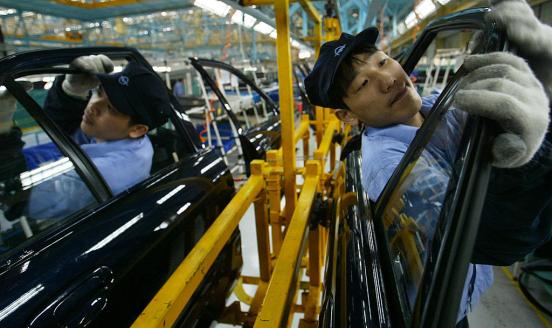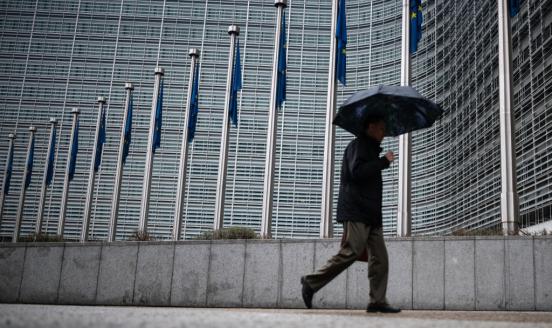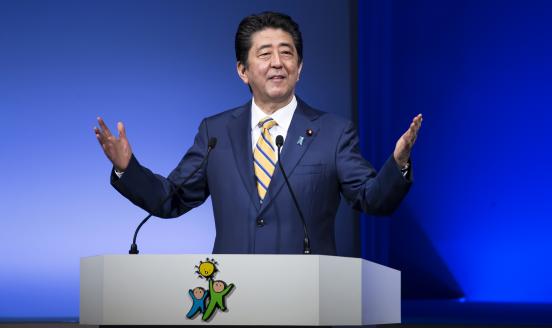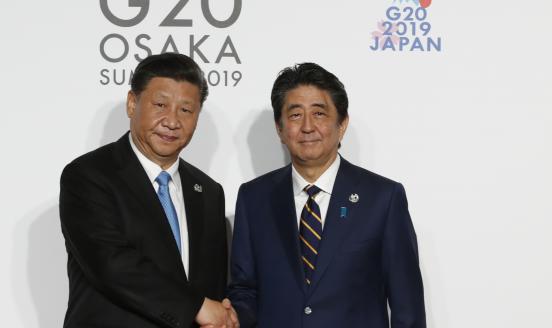Intellectual Property and Competition Policy in Europe and Japan
Intellectual property (IP) is a cornerstone for incentivising innovation initiatives. It defines a framework within which firms and individuals can pr
Speakers
Reiko Aoki
Commissioner at the Japan Fair Trade Commission,
Peter Alexiadis
Founding partner of Gibson, Dunn & Crutcher Brussels office,
Kai-Uwe Kühn
Professor of Economics and Deputy Director of the Centre for Competition Policy, University of East Anglia,
Michael Koenig
acting Head of Unit for Intellectual Property and Fight Against Counterfeiting, European Commission, DG GROW,
SUMMARY
In her introductory presentation, Reiko Aoki, Commissioner at the Japan Fair Trade Commission, provided an overview of the main characteristics of Japanese competition and intellectual property law, highlighting the (few) differences with the EU framework. According to Prof. Aoki, competition policy and the exercise of IP rights are intrinsically related. On one hand, by stimulating R&D and innovative activities of companies, IP rights certainly have a positive effect on competition in the existing and newly created market. On the other, the exercise of IP right may have negative effect on competition if IP holder refuses to license its technology or imposes strictly restrictive conditions. Maintaining the balance between these two opposing forces may not be always easy, given the changeable nature of any competitive context and firms’ conducts. In this regards, the Japan Fair Trade Commission has recently updated its Guidelines for the Use of IP under the Anti-Monopoly Act. This revision was mainly motivated by the emergence of new issues related to the Standard Essential Patent (e.g., Apple vs. Samsung case in Japan).
The presentation of Prof. Aoki was followed by an interesting discussion with three panellists.
Prof. Kühn noted that, while the is strong evidence that efficient property rights systems enhance economic growth, the marginal impact of the IP system remains unclear in the literature. Taking as example the size of smartphone screen (Samsung vs. Apple), he advised not underestimating the importance of imitation as driver of innovation. Wondering whether our system may overprotect IP, he argued that the existing trade-off between innovation incentives and ex-post competition is different across industries. In this regard, he pointed to ICT and biotech as cases in which the complementarity of patents is probably hindering innovation. Answering to the question posed by Georgios Petropoulos whether excessive competition may end up slowing innovation, Prof. Kühn explained that there is now a consensus about the positive effect of competition. The intuition presented is straightforward: if one looks at “patents as races to the next big thing”, having multiple competitors will push all of the racers, even the following ones, to innovate and avoid “arriving last”. For this reason, merger control will remain, in his opinion, an essential instrument to guarantee the existence of multiple players participating to the innovation “race”.
Michael Koenig, from DG-GROW, highlighted how competition and IP policy, only by complementing each other, can guarantee the correct balance between innovation incentives and ex-post competition. He also stressed that IP is not goal for itself, the monopoly it creates is acceptable as long as it translates into innovation and growth. To ensure this outcome, three major conditions are necessary. Firstly, the right legal toolbox must be available and updated to the market developments. Toolbox must be accessible by all type of companies, also SMEs. Enforcement must be effective across the EU. He then presented the recent and ongoing initiatives of the Commissions along these three lines. The unitary patent title across EU should be at its final stage of discussion. An important novelty to harmonise the existing diverging national laws is the new EU directive “on the protection of undisclosed know-how and business information (trade secret) against their unlawful acquisition, use and disclosure”. There are also ongoing discussions about the creation of European-level insurance schemes for litigation and IP theft for SMEs. In his conclusions, Dr. Koenig warned that the advent of Internet of Things is likely to deeply affect the licensing environment of SEPs, given that mobile connectivity will become essential part of many products so far completely unrelated.
Peter Alexiadis concluded the panel discussion with a series of considerations, based on his wide experiences as a practitioner in this field, on the relationship between competition and IP law. In his view, there is certainly a tension between the two. Competition policy mainly deals with a short-term issue, generally analysed with a static approach of prices. While IP policy has instead a much longer-term perspective with a focus on allocative efficiency. However, he claimed that there is also a certain degree of complementarity, which may vary over time. According to Mr. Alexiadis, indeed, there are cycles of over- or under-enforcement and over- or under-protection. Understanding where we are now and where we are heading is not trivial. Also because IoT will be a true game changer that Competition and IP policy will eventually have to face and (hopefully) manage.
Answering to a question from the audience on the differences in the patenting frameworks between EU-Japan as a potential source of problem for innovative companies, the panellists recalled that there is IP chapter in the negotiations of the Free trade agreement with Japan and there’s a positive convergence given the substantial common grounds.
Event notes by Filippo Biondi, Research Assistant.






